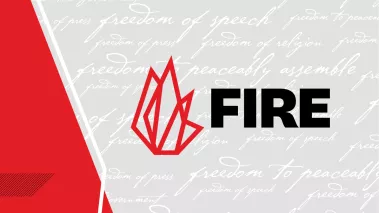Table of Contents
Colleges, Mandatory Counseling, and the Right of Private Conscience

The Virginia Tech tragedy earlier this year, in which student Seung-Hui Cho killed thirty-three people, ignited many policy debates. One of those debates focused on the college’s responsibility for the mental health of its students. Prior to Mr. Cho’s mass shooting, various Tech officials knew that Mr. Cho had exhibited a series of behaviors indicating the possibility of mental illness. Mr. Cho had persisted in unwanted contact of women, expressed suicidal thoughts, took photographs of women’s legs in class without their knowledge, and written angry, disturbing, and violent stories.
The combination of these red flags and the scale of the tragedy caused some commentators to call for colleges to exercise greater control over their students’ mental health. Seven years ago, a similar debate rose to national prominence when M.I.T. student Elizabeth Shin’s parents sued M.I.T for failing to prevent Ms. Shin’s dorm room suicide. A New York Times article entitled, “Who’s Responsible for Elizabeth Shin?” wondered if M.I.T. should have taken greater responsibility for monitoring Ms. Shin’s mental health.
While colleges taking greater responsibility for their students’ mental health admirably aims to prevent student violence, such policies need careful tailoring to avoid violating students’ First Amendment rights. At Virginia Tech, Mr. Cho’s disturbing but protected creative writings were part of a larger pattern of behavior that may have legitimated the school stepping in. In the wake of the tragedy that followed, however, some colleges have become too quick to order students to attend counseling or undergo a psychological evaluation.
Public colleges responding to clearly protected expressions by prescribing mandatory counseling or psychological evaluation violates both students’ rights to free speech and private conscience. Unlike a suspension from school, which offends a student’s right to free speech, ordering psychological counseling for protected speech compounds the offense to the Constitution by violating both a student’s right to free speech and his right to private conscience.
The goal of psychological counseling is to change the way a person thinks and sees the world. As a result, mandatory counseling prescribed for protected speech is invasive, cutting to the core of what Justice Robert Jackson described aptly as a “fixed star in our constitutional constellation.” Responding to a primary school’s attempt to force its students to salute the American flag, which violated the students’ religious beliefs, Justice Jackson wrote, “No official, high or petty, can prescribe what shall be orthodox in politics, nationalism, religion or other matters of opinion or force citizens to confess by word or act their faith therein.”
When state colleges require counseling against a person’s will merely for saying or believing the “wrong” thing, it becomes state-run thought reform. The state labels certain clearly protectedexpressions “sick,” and deploys counselors to modify the individual’s beliefs and verify that the individual has discarded the “sick” beliefs.
Schools may permissibly respond to speech that crosses the line from a protected expression of belief to a genuine threat, as well as to disturbing behaviors that may accompany protected speech — like yelling in the middle of a class. They may also respond to disturbing patterns of expression by talking with the student, and by offering the student counseling services.
But this is not what FIRE has seen occur on college campuses in the wake of Virginia Tech. Rather, we have seen students sent to mandatory counseling after their school labeled them a “threat” for engaging in protected speech that did not even remotely rise to such a level. Right after the Virginia Tech tragedy, for example, Hamline University ordered graduate student Troy Scheffler to undergo psychological counseling when Mr. Scheffler sent two emails expressing his belief that Tech’s ban on concealed weapons may have contributed to the number of deaths. The point of counseling in this context is presumably for Mr. Scheffler to learn the “offensiveness” and “inappropriateness” of expressing his particular beliefs. In another egregious case, Valdosta state ordered student T. Hayden Barnes to undergo mental counseling after he protested the school’s decision to build a parking garage by posting a collage on Facebook.
Ordering mandatory counseling for what is clearly protected speech violates the same right as the extensive thought reform program dismantled this fall at the University of Delaware. Delaware’s mandatory one-on-one personal interviews, compelled speech, and explicit re-education goals sought to compel students to discard certain “incorrect” beliefs, and adopt others. Like Hamline, Delaware took it upon itself to dictate and correct students’ mental lives. Whether such invasions are motivated by a desire to correct a problem student’s disturbing speech, or every student’s biased worldview, they are an offense to the Constitution.
Prescribing psychological counseling for protected expression instead of expelling, condemning or suspending the student can obfuscate the perniciousness of the action. Colleges may stress their concern for the student, claiming that they are only trying to help — not punish — him or her. No matter how sincere and benign this motivation, however, it is not a public school’s job to make sure its students have “healthy” beliefs. FIRE will be keeping a close eye on this trend in the year to come.
Recent Articles
FIRE’s award-winning Newsdesk covers the free speech news you need to stay informed.

O holy fight: New Hampshire Satanic Temple statue threatened by more than vandals

California and other states are rushing to regulate AI. This is what they’re missing

One day after FIRE lawsuit, Congress passes changes to filming permits in national parks
